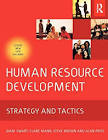|
The Trainers HandbookChapter 5 - Evaluating Your EffectivenessCreating and Using Short-Term Evaluation ToolsLets look more closely at the evaluative tools just cited. Asking questions and using eye contact have been covered in Chapters 3 and 6, so lets begin with quizzes and reviews.
Oral Reviews and Spot Quizzes. Oral reviews are a series of well-framed questions. You want to get the trainees talking about what theyve just learned. Dont recite what youve coveredask them to. I like to ask my classes to highlight what they remember from the previous session. This forces them to review the material and allows me to expand upon key areas, correct misunderstandings, and include material that was inadvertently missed. Structure the review questions around your objectives. This creates strong redundant patterns. Also, never answer your own questions because that allows the class to stop thinking, and it defeats the purpose of the review. Dont review large blocks of work at once. Break them down into segments and review each shortly after you finish it. You can always test overall knowledge later. Likewise, keep your reviews short. If you find, however, that the group doesnt know the material, you may have to cover it again by prompting Socratically. Look at it as an effective redundant loop. Lastly, be consistent. Review regularly, and dont miss a chance to review. Reviews not only provide feedback and evaluation of what trainees have learned but give them a perspective on what they will be learning. One way to ensure regular reviews is to make reviewing previously covered material a part of the preparation step of each new unit of instruction. I find that this keeps me in the habit of reviewing regularly. Written quizzes are similar to oral reviews, but remember that the level of understanding you are testing is simple recall. The quiz should (1) discover what the trainees have grasped, and (2) provide a redundant loop to help lock in learning. Questions should be straightforward, not tricky. Keep the quiz short. Ten questions are more than enough. Fill-in-the-blank questions or questions calling for one- or two-word answers usually work best. Avoid true-false, multiple-choice, and essay questions; save them for full exams. Since the real value of a quiz is to let the learners see how theyre doing, have them self-score the quiz. Do ask, however, to look over those with more than a couple of wrong answers. You may be able to correct a problem before it escalates. Alternate quizzes with oral reviews, but be sure to cover each segment of your course with one or the other. In addition, consider using a pretest-posttest format to measure growth and mastery. Administer a quiz at the beginning of the class; most will do poorly. Upon completion of training, give them the identical test; their responses will show a marked improvement. Excerpts from Chapter 5, The Trainer's Handbook
© 1998, 1993, 1987 AMACOM, a division of American Management Association, New York. All rights reserved. Published by AMACOM Books http://www.amacombooks.org Division of American Management Association 1601 Broadway, New York, NY 10019 Customer Service: 1-800-262-9699 More learning articles: |
|
|
|
|
|
|
|
|
|
|
|
| Copyright © 2000-2006 Alan Price and BestBooks.biz contributors. All rights reserved. |


